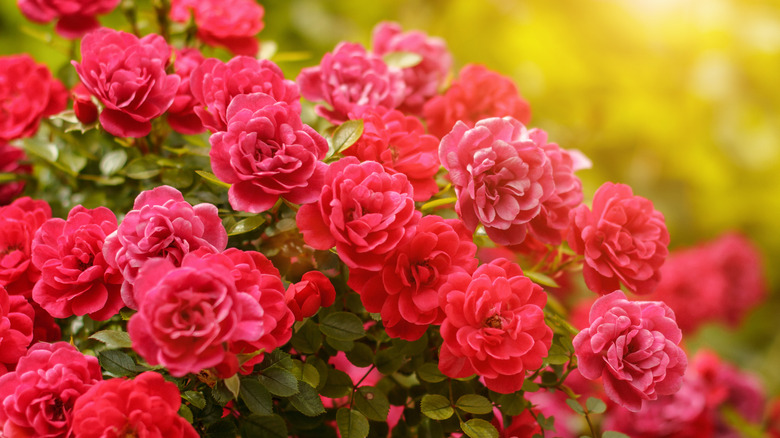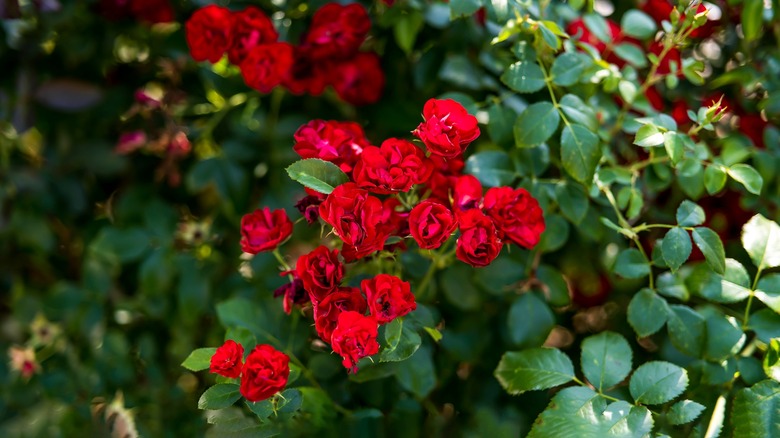When Will Your Roses Bloom In Your Garden?
Rose bushes are a great garden addition, providing beautiful blooms every year. Their flowers come in a variety of colors, though red, white, and pink are the most common. You'll need to put in some work for your rose bush to gift you with flowers, and location is a significant factor to their growth (they require sunlight for six to eight hours a day), as is air circulation and the type of soil you use.
Clemson Cooperative Extension Home & Garden Information Center recommends using loose, well-draining soil for roses. If you don't have that in your yard, consider planting your rose bushes in raised garden beds. Watering them deeply will help their roots to grow and support the entire plant, though you should watch your roses to determine whether they need more or less water. Once you're giving your rose bush the best care to grow, you should expect your roses to bloom — but the question is when?
When to expect rose blooms
When your rose bushes bloom depends on the climate of your location and which variety you're growing. You can expect flowers at any time, from the beginning of spring to early fall. Many rose types will bloom twice a year, in the summer and fall, before it gets too cold. In comparison, continuous varieties like hybrids and miniature rose bushes can keep regrowing flowers during the warmer months. If you live in an area that never frosts, you can expect to see roses at any time of the year.
Venus et Fleur explains that your first round of spring roses should begin to bloom six to eight weeks after new growth appears. Once the last day of frost has passed, your plant will come out of dormancy, so keep your eyes open. Then you can mark your calendar and estimate when to expect flowers. Rose blooms will last for six weeks before they die, and new blooms will take their place (if your rose is a variety that blooms more than once).
How to promote more flowers
If you want to ensure multiple phases of blooms over the warmer months, you'll need to deadhead your flowers. Cutting the older growth will make your plant grow new roses for as long as possible. It works by preventing your rose bush's energy from making seeds and redirecting it to create more flowers, per the Old Farmer's Almanac. This practice also benefits your plant since old soggy roses can cause diseases, rot, and attract pests.
You should deadhead your rose bushes at least once a week, but you can do it as frequently as daily during the summer. The best way to do this is with a clean pair of pruning shears. First, locate any old and dying flowers. Then cut them off at the stem, below the first leaf. New growth will start from there and later bloom.
It's important to know when to stop deadheading your rose bush. Continuing too late into the winter months will prevent your plant from going dormant and cause the cold weather to damage it. You should stop about three to four weeks before the first frost.


